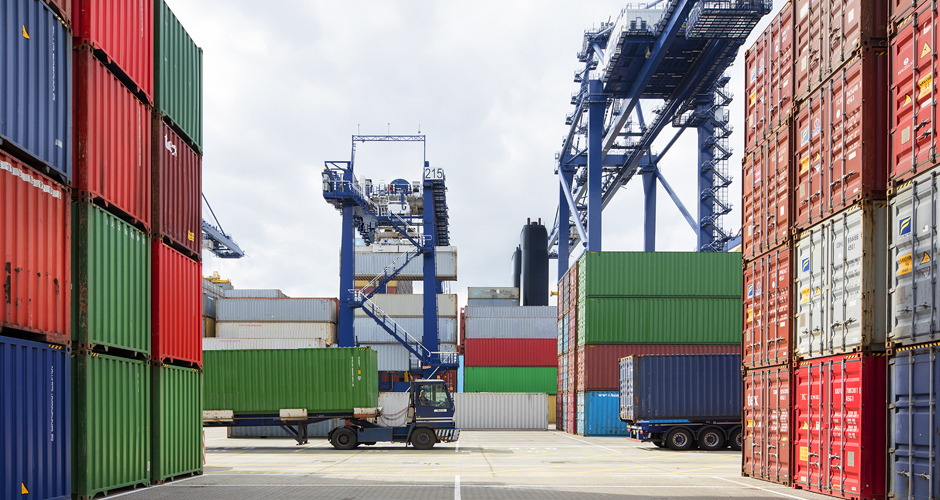 24th December 2021
24th December 2021
As world leaders met at the 26th Conference of the Parties (COP26) in Glasgow recently finding new ways of reducing carbon emissions and slow down the increase in global warming. There is where the shipping industry came under more pressure to eventually eliminate burning fossil fuels as a primary energy source.
The United Nations International Maritime Organisation (IMO) has set a firm deadline for shipping to achieve a 50 percent reduction in CO2 emissions by 2050, compared to 2008 levels. The race is now on to find clean, green fuels and emission free propulsion to radically change shipping and build a sustainable industry for generations to come.
Shipping now faces additional legislation and carbon taxes following a series of pledges made by governments at COP26, and the IMO will likely have to reach interim emission reduction targets by 2030 and 2040.
The Paris Agreement’s long-term temperature goal to combat climate change is to keep the rise in mean global temperature to well below 2 °C above pre-industrial levels, and preferably limit the increase to 1.5 °C recognising that this would substantially reduce the impacts of climate change. Emissions should be reduced as soon as possible and reach net-zero by the middle of the 21st century (2050).
Climate change impacts can be mitigated by reducing greenhouse gas (GHG) emissions and by enhancing sinks that absorb greenhouse gases from the atmosphere.
In maritime logistics transport, scenarios envision sharp increases in the market share of electric vehicles, and a switch to low-carbon fuel for other transportation modes would be helpful to decarbonised with the use of technologies and modes of transport.
As the move to electric powered vehicles gathers pace, Hutchison Ports’ as part of its sustainability strategy, and to reduce carbon emissions, has announced it is phasing out diesel powered tractors and replacing them with units powered by electricity or hydrogen.
The programme will also see an end to the purchase of diesel-powered tractors from January 2024 except in exceptional circumstances. Before that time at least 20 percent of any proposed purchase of internal tractors will be powered by green energy, such as electricity.
PORT OF FELIXSTOWE PHASE OUT DIESEL-POWERED YARD CRANES
To coincide with COP26 and the group’s sustainability strategy, Hutchison Ports Port of Felixstowe has announced it plans to order 48 electric tractors and 17 zero-emission remote controlled electric rubber-tyred gantry cranes (ReARTGs) as the first batch of new equipment as part of its emission reduction programme. The new two-wheel drive tractor units will be the first electric tractors at the UK’s largest container port.
“This order represents the latest part of our plan to reduce the environmental impact of our operations. In total, replacing 48 diesel-powered tractor units and 17 conventional RTGs with new electrical equipment will save 6,662 tonnes of CO2 and 59.38 tonnes of NOx emissions every year.”
Chris Lewis, Chief Executive Officer of Port of Felixstowe.
The port is currently examining ways to explore the use of hydrogen powered port equipment and is involved in one of the projects selected to receive support from the Clean Maritime Demonstration Competition. The project involves a feasibility study into the potential for Freeport East, which includes the ports of Felixstowe and Harwich International, to become a net-zero port and a net-zero energy hub for third parties and the adjacent region.
“Climate change is one of the greatest challenges of our time and Hutchison Ports is committed to playing its part by minimising the impact of port operations on the environment. Promoting a culture of technological innovation and adoption of alternative fuels is a key strand of our strategy. This investment takes us another step nearer to our goal.”
Clemence Cheng, Managing Director Hutchison Ports Europe and joint chair of Hutchison Ports Group Sustainability Committee.
MAJOR MULTINATIONALS COMPANIES BACK ZERO-EMISSION SHIPPING INITIATIVE
Nine leading multinationals have become the first companies to sign a new 2040 Ambition Statement and commit to transitioning their ocean freight vessels to zero-carbon fuels by 2040, the Cargo Owners for Zero Emission Vessels (coZEV).
CoZEV is a coalition of cargo owners, initiated by the not-for-profit Aspen Institute Energy and Environment Program, that brings together cargo owners and shipping operators to work to accelerate the decarbonisation of the shipping industry and deliver on corporations’ net zero emission supply chain commitments.
Amazon, Brooks Running, Frog Bikes, IKEA, Inditex, Michelin, Patagonia, Tchibo and Unilever became the first to sign the 2040 Ambition Statement, sending a message to bunker fuel producers and the shipping industry that freight customers want to see zero-carbon shipping services delivered.
In the statement, zero-carbon fuels are defined as fuels that release no or very little greenhouse gases over their lifecycle, including no emissions at production stage. As such fossil gas or liquified natural gas (LNG) will not be considered as a zero-carbon fuel. Source: greenbiz.com
STRONG SHIPPING PRESENCE AT COP26
Shipping groups hope the COP26 will put more pressure on the IMO environment committee to increase its climate ambitions, particularly to commit to achieve net-zero emissions by 2030.
“Shipping’s unprecedented gathering of industry executive and maritime states at COP can set the agenda for the next steps in shipping’s decarbonisation journey.”
“Governments have a chance to send a clear signal to industry that not only are they serious about shipping reaching net zero carbon emissions by 2050, but that they will provide proper backing to our plans on how we reach that goal.” – International Chamber of Shipping secretary-general Guy Platten told Lloyd’s List.
Shipping has to reaffirm its commitment to a sustainable future at COP26 with plans for green trade lanes and more support for emerging nations to achieve their emission reduction targets. The industry must move forward together to ensure those commitments are kept.